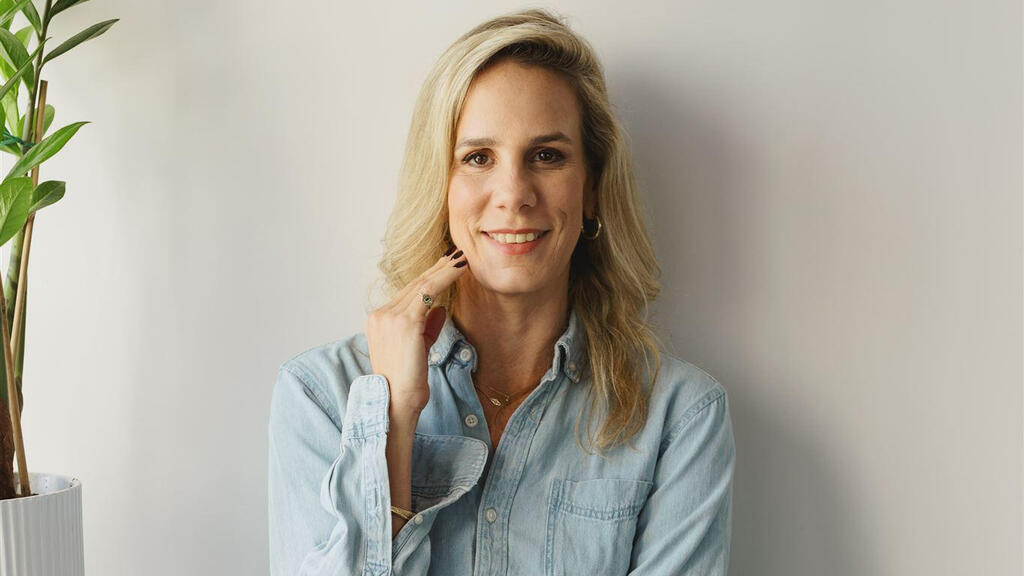
How Israeli high-tech companies are adapting to IDF reserve duty demands
With the beginning of the war, many high-tech workers were recruited into the IDF reserves, including senior management. Most have returned to the office, but some still continue to serve several days a week in between work
For almost four months now, Oren Dagan, the VP of Marketing at the startup RiseUp, has been working in a hybrid format - three to four days a week in the IDF reserves and the rest of the time at work. On the morning of October 7, he was recruited to the Air Force reserves where he serves as an officer. After a month of continuous service, with furloughs of a few hours for rest, he switched to shifts, so that now he is available for work two days a week.
"I would always be in the reserves about 30 days a year and on October 7 we all just arrived at the unit and our lives turned upside down. A situation arose where life had to be built around a combat routine both in the context of the reserves and work and family," he says. "One of the things I had to figure out pretty quickly is what are the critical things I can and should do and what I should let go of. This is reflected in the mobilization of the team at RiseUp, including the management to compensate because as a marketing leader I have to be very involved in things and my focus has become more on the team, to help them take more responsibilities in places that are under my responsibility."
2 View gallery


Left: Netanel Breuer, digital director, Redefine Meat; Right: Nova offices
(Benny Gam Zo Letova)
Although he cannot be involved in the small details, as his position requires, and had to transfer some of his responsibilities, Dagan is not afraid of losing his place in the company. "I've been asked this a lot, but I'm really not afraid, mainly because they have my back and there's a lot of patience from the company. The real challenges are at home. I have two small children and a wife who has been working all this time, so around all that it was important for me to create a base that I could live with," he says.
Yael Alkalay, VP of HR at the company, which develops a fintech platform for analyzing user spending and income patterns and providing tools to improve personal flow, says that the fact that it is a relatively small startup company, with about 100 employees, is an advantage in dealing with the situation. "This allows us in HR to maintain a very personal and close relationship with each worker and provide the best response to their every need, including employees whose manager is not present for a long time due to being in the reserves. Thanks to our size and the way we work as a startup, we were able to quickly organize new teams that provide full backup in the absence of our employees and along the way also fill the place of managers on the days they are in the reserves."
When the number of reserve days of some of the employees began to drop, they started coming to the offices out of choice, Alkalayi says. "They felt the clear need to return to some kind of routine after such an intense reserve period and began to combine job tasks and working days with the reserves. For our part, we encouraged them to come because we knew how much value there is in returning to some kind of routine for the mind and how important a community experience is for maintaining the spirit. When we saw that this combination was indeed possible for some of our people, we turned it into something more institutionalized and adjusted HR's activity so that it could effectively support such a routine. We look at this period, which we have no idea when it will end, as some kind of new world of work that we need to learn to manage with. In the end, it allows all parties to get the best out of this challenging period, and especially for the employee, who has to combine a lot of things."
"Finishes a shift in the army, sleeps for two hours and reports to the office"
S., vice president of hardware and projects at the international high-tech company Nova and an officer in Division 36 in the reserves, was transferred on October 7 to the operational headquarters of the Air Force and has been in the reserves ever since. After an intensive month and a half, he returned to duties that are performed in shifts, so now, he plans the shifts in advance and the rest of the time he is at work. The shifts are long, some at night, after which he sleeps for two hours and then reports to work at 10:00 in the morning. "In the end, it does affect work a bit and comes at the expense of nights and personal time. At the beginning of the war I was constantly in the army and now I'm combining the two. I estimate that I am 70% employed at the moment," he says.
This situation where he is not constantly at work and still has to maintain productivity requires a different approach. "You have to be very focused, delegate more, work more with the team and see where I can free things up for them, which projects we focus on and which projects we leave behind. Part of the point is also to share with the others so that they take on some of the tasks and this is happening. In other words, the entire team also covers for the rest of the employees in the reserves. We put things on the table and we don't let the events manage us. We constantly strive forward and manage it forward, it's an experience that reminds us a little of what we learned during the pandemic," he says.
Unlike the pandemic, where most of the struggle was with shifting to working from home, the situation today is that some people are being recruited to the reserves, and even those who have been released know that they will probably have to return to serve again. There is a great deal of uncertainty in all aspects of life, so the question is how can you prepare when you don't know what will happen.
"The first month really reminded me a bit of the pandemic, the offices were empty and we urged people to come to the office because psychologically everyone who was at home had low productivity and anxiety because they were close to the news. We made sure that people knew the big picture and knew their role in it - where the project stands, who is the client, and what is the important data. In addition, we plan ahead as much as we can, tasks, projects that may need subcontractors and just as importantly, we broadcast business as usual," he says.
Regarding his personal life, with the duality of the army and civilian life, S said that although there are differences in behavior, from a psychological point of view being in the army gives him much more certainty. "Once you're in the army, you know exactly what's going on, the details, you also know the plans and know how to prepare. Psychologically, it actually gives me a good anchor. The price is mainly the stress because everything is constantly happening around the clock and it comes at the expense of family, hobbies and fitness."
Tali Slama, Head of Global Talent Acquisition at Nova says that you learn to live with the reserves alongside work. "People understand that they receive their schedule for the week, know what their schedule is in the army, and within the organization they know what needs to be rejected and conduct a dialogue. We have a lot of trust in our people and know that no one is exploiting the situation. If people worked overnight in the reserves then they don't start work at 9 in the morning but at noon or one. In the end it's win-win and I think it stems from the high level of commitment and personal and professional responsibility, the broad vision and understanding of the business because we are ultimately a global business company."
The significant difficulty, beyond the management of the employees and managers who combine work and the reserves, is the uncertainty. "In the end, it's not like there's any visible end to the war. People who got discharged told me, 'I'm going to be discharged, but in May I'm being called up again.' We are trying in this interim period to try to see where we are in relation to the business plans, making sure that the goals we set for ourselves have also been achieved and if necessary diverting personnel and resources. We are a global company, so it is true that a large part of the product line is here, but we have two other units in Germany and the USA that continue to work at full strength."
It is the commitment and responsibility of the employees that makes this new work model successful. "Nobody has disappeared. People completely understand the balance, and even if they are required to do shifts on reserves, they try to take them on Friday-Saturday at the expense of their private time. The autonomy that employees and managers have here has proven itself. We are a global company with business goals. It’s not like we get up in the morning and say, 'Well, what's going on today,' everyone knows very well what the plans are, how things are progressing within the year, and this planning also allows us to know well in advance who is available when and where," she says.
"I was promoted to a new position at work while in the reserves"
In January, during the war, Netanel Breuer received a promotion to the position of digital manager at foodtech company Redefine Meat despite being in the reserves since the beginning of December. He is a military officer in the paratroopers brigade. "In the beginning I had to learn the position because I started a new position that I did not do regularly, so I ended up doing two weeks of night shifts from five in the afternoon. After two weeks I started to integrate into a model of shifts. For example, Sunday morning in the army, Monday morning at work, then at five o'clock the evening shift starts in the army, Tuesday morning in the army, Wednesday in the office, then the weekend in the reserves. I also have the option of working remotely in the morning until five and then go to the army for a shift," he says.
This combination is challenging but Breuer says that it was important for him to serve in the army and also be involved at work and he did not want to give up either of them. "The announcement of my promotion came at the same time as the announcement of my recruitment to the reserves, so I had to learn at the same time a new position in the reserves and areas of responsibility in the office. In addition, you have to be able to juggle your personal life as well and keep the balance between everything. There is no doubt that it is challenging. In the army you are part of a fighting force and you contribute where needed and then you come home and you have to maintain a healthy and good relationship and at work, to give the best service, while learning. It’s certainly not easy. They were very supportive at work, they kept calling and asking what I needed, I felt a lot of care from the team and from the management," he says.
The way to deal with fully or partially recruited employees and with the uncertainty is flexibility, says Dorit Caspi, VP of Human Resources at Redefine Meat. "This requires the organization to reorganize, flexibility and a lot of creativity. For example, in our boutique factory in Rehovot, which is a manufacturing plant that is dependent on meeting production targets and about a quarter of whose workers were recruited into the reserves, we assigned volunteers from the headquarters in order to be able to meet the production targets so the economists, marketing people, scientists and members of management all took part in the production effort and also got an interesting glimpse of factory line work, a side they didn't know and also an experience they won't forget," she says.
The price of this work routine is exacted from everyone: the employee who jumps between two very different worlds, the colleagues who are required to step up and share the resulting workload and also of the organization which adjusts its expectations to the reality. "Many of the reservists have returned to work, but we take into account that we are not done with the fighting yet and at any given moment the situation can change," Caspi says.
Tal Malkin, Head of Operations at Buff Technologies, which develops a platform for managing customer clubs for gamers, also performs a role in the reserves that she did not perform before. She serves in the Air Force as an assistant to the commander of the cooperation unit and is on reserve three times a week on average. During her reserve days, she works at night. "Despite the load it creates, the goal is big and important and therefore the load created dwarfs the importance of the task," she says.
"When they called to ask me to join this reserve unit, a unit in which I had not served before, I had no doubt that I would show up at that moment - if my help is needed, then I am there. I think it is very clear to everyone, and of course to the management at the company that if we can help the reserves it is our duty. There are a number of other people (including the management and the founders of the company) who, from the beginning of the fighting, combine their work at Buff, and the reserves, so the combination feels very natural and correct," she says.















